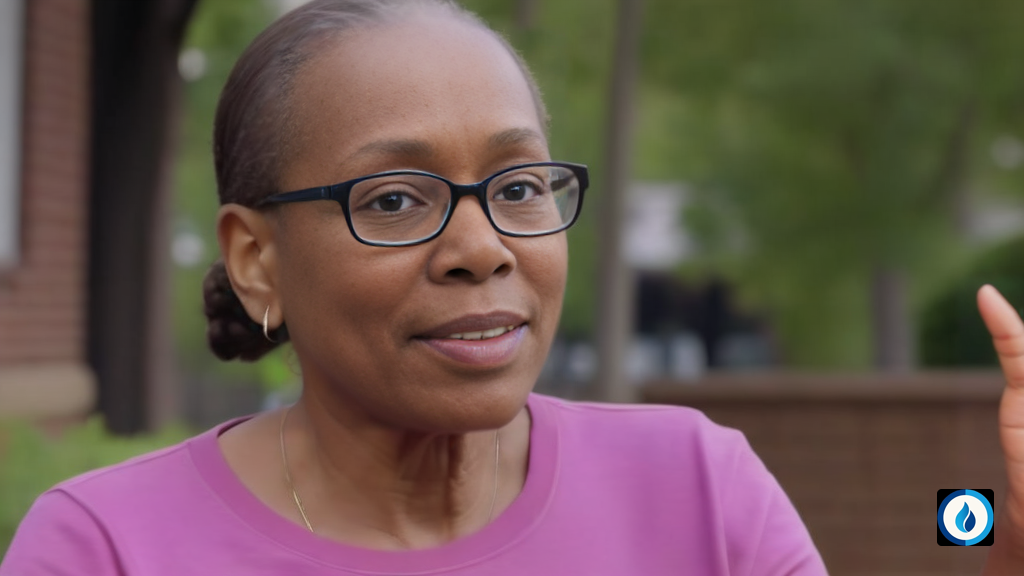The Strength in Seeking Assistance
For individuals grappling with diabetic macular edema (DME), the journey often involves navigating the complexities of seeking and accepting help. This process, while essential, can pose unique challenges for Black Americans.
Monica Straus, a passionate advocate for diabetes care at Torrance Memorial Hospital’s Outpatient Diabetes Education Center, sheds light on the reluctance among Black individuals to reach out for assistance. She observes a common thread of hesitation, driven by a desire not to burden others or reveal vulnerabilities.
Navigating Beyond Visual Impairment
The ramifications of DME extend far beyond vision loss, impacting everyday activities and independence. As the condition progresses, individuals often find themselves in need of support with fundamental tasks such as household chores and transportation.
Research underscores the significant challenges faced by those with vision impairment, from managing medications to maintaining financial stability. Employment opportunities may also be affected, underscoring the vital role of a robust support system.
Empowering Strategies for Seeking Aid
Advocating for oneself is pivotal in the journey of DME management. Here are proactive approaches to requesting assistance:
1. Maintain Open Communication
Keep loved ones informed about changes in your condition, fostering an environment of preparedness and understanding. Whether it’s alterations in treatment or evolving needs, transparent communication lays the groundwork for effective support.
2. Leverage Close Relationships
Identify trusted confidants within your circle who possess knowledge of your journey with DME. Establishing rapport eases the process of seeking assistance and fosters a sense of mutual understanding.
3. Start Small, Grow Confident
Initiate requests for minor aid to acclimate to seeking help. Whether it’s a grocery run or household tasks, gradually expanding comfort zones primes individuals for larger requests, such as medical appointments.
4. Clarity Breeds Effective Support
Articulate specific needs when seeking assistance, empowering supporters with actionable information. Honesty and precision enhance the efficacy of the aid provided, fostering a symbiotic relationship.
Challenging Preconceptions and Discrimination
The stigma surrounding type 2 diabetes exacerbates the reluctance to seek help, perpetuating misconceptions and discrimination. Straus highlights the intersectionality of discrimination, noting the compounded challenges faced by Black individuals with DME.
The pervasive lack of empathy towards DME sufferers, compounded by racial biases, underscores the necessity for informed dialogue and support within communities.
Fostering Community Support
In combating the isolation often accompanying DME diagnosis, community engagement proves invaluable. Straus emphasizes the significance of shared experiences within the DME community, particularly for Black individuals.
By fostering connections with others navigating similar challenges, individuals find solace and empowerment, transcending the barriers of isolation.
Accessible Resources for Support
For those seeking additional support, various online resources and support groups cater to the unique needs of DME sufferers. These platforms offer a sense of camaraderie and understanding, complementing traditional avenues of assistance.
Editorial Sources and Fact-Checking
The veracity of information presented is upheld through stringent editorial standards. Citing peer-reviewed studies and expert insights, the integrity of the content remains paramount.
References:
– Scharff DP et al. More Than Tuskegee: Understanding Mistrust About Research Participation. Journal of Health Care for the Poor and Underserved. August 2010.
– DeAngelis T. Black Men’s Mental Health Matters. American Psychological Association. January 24, 2023.
– Godbolt D et al. Strong Black Women: Linking Stereotypes, Stress, and Overeating Among a Sample of Black Female College Students. Journal of Black Studies. September 2022.
– Hill L et al. Health Coverage by Race and Ethnicity 2010–2022. KFF. January 11, 2024.
– Jacob G et al. A Systematic Review of Black People Coping With Racism: Approaches, Analysis, and Empowerment. Perspectives on Psychological Sciences. March 2023.
– Patterson A et al. Racial and Ethnic Disparities in Insurance Coverage Among US Adults Aged 60 to 64 Years. JAMA Network Open. April 2022.
– Johnson C. The Intersectionality of Race and Disability. Michigan Department of Civil Rights.
– Welp A et al. Making Eye Health a Population Health Imperative: Vision for Tomorrow. National Academies Press. September 15, 2016.
